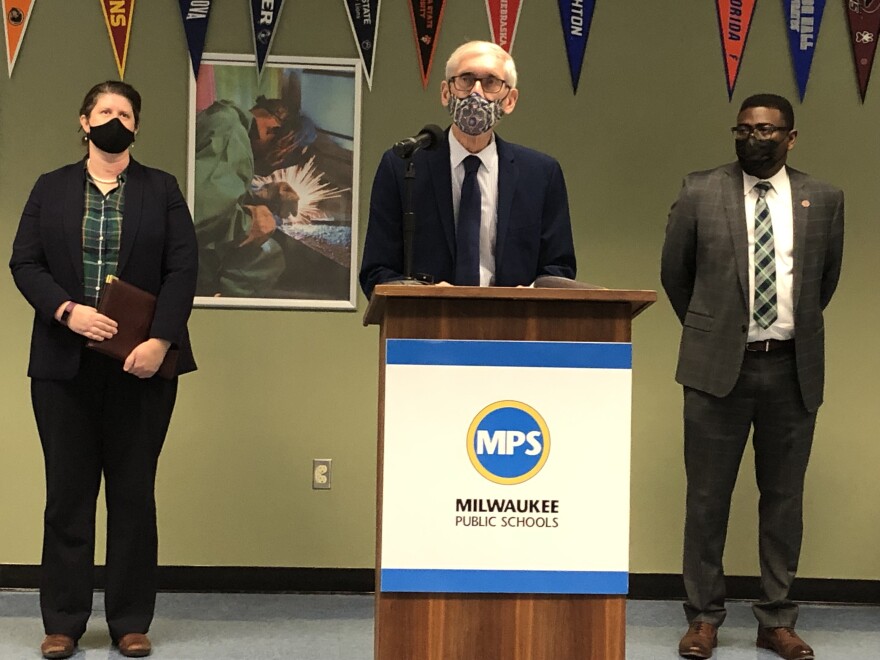Gov. Tony Evers announced Thursday that Wisconsin public schools will soon get $110 million to spend as they see fit.
It equates to about $130 per student, which Evers says will help make up for what the Republican-crafted state budget lacks.
The $110 million comes from the CARES Act — one of the federal pandemic relief bills.
Evers initially announced the funding in July, when he signed the Republican-authored biennial state budget, which gave schools minimal new funding and included no increase to school revenue limits. Revenue limits determine the majority of school district budgets by dictating how much they can spend in property taxes and general state aid.
"Just as I said when I signed it, the last budget wasn’t good enough for our kids," Evers said. "Especially in light of the ongoing panic – pandemic – and the supports that we know our kids need now more than ever. Republicans could and should have done more."
Republican lawmakers justified their education budget by pointing out that schools were getting a windfall of federal pandemic money, more than $2 billion.
But that money, along with the $110 million from Evers, is temporary. So it leaves schools in a tricky situation with significant one-time money but basically flat funding for ongoing expenses like staff salaries.
One school finance director dealing with that challenge is Blaise Paul of the South Milwaukee School District, which is set to receive about $380,000 from the Evers allotment.
"You know, it’s one of those things where I’m grateful for it because it is something that we will find a really good use for it," Paul said. "My issue is I will fight hard not to use this funding for ongoing costs because it sets us up for a very bad fiscal situation a year, two years down the road."
Paul said some one-time expenses South Milwaukee is looking to include HVAC improvements and tutoring. But he says what’s really needed is funding to attract and retain staff.
"We have numerous positions that we can’t fill right now," Paul said. "So we’ll probably utilize this funding in ways that can retain and attract, but is one-time in nature."
During the Thursday press conference, Evers suggested that schools could use the new $110 million for both one-time and ongoing costs.
Evers made the announcement at Milwaukee’s North Division High School. MPS is set to receive $9.6 million from the special funding. Superintendent Keith Posley responded to a question about whether he would direct the money toward ongoing costs like staffing or one-time expenses.
"Both ways, because we would want to hire staff as well," Posley said. "If you take the example of contact tracing, we need individuals to do contact tracing, the way we look at contact tracing. But beyond the pandemic we may not have that need. As well as tutoring services, one-on-one type of tutoring."
The Evers money adds to more than $700 million in federal pandemic aid for MPS known as ESSER (Elementary and Secondary Schools Emergency Relief.) The district has budgeted that money over the next three years for things like school renovations, textbooks and technology, and teacher training.
School boards could use this funding in the current school year or beyond. A spokesperson for the governor said districts will get checks within about a week.
Have a question about education you'd like WUWM's Emily Files to dig into? Submit it below.
_






